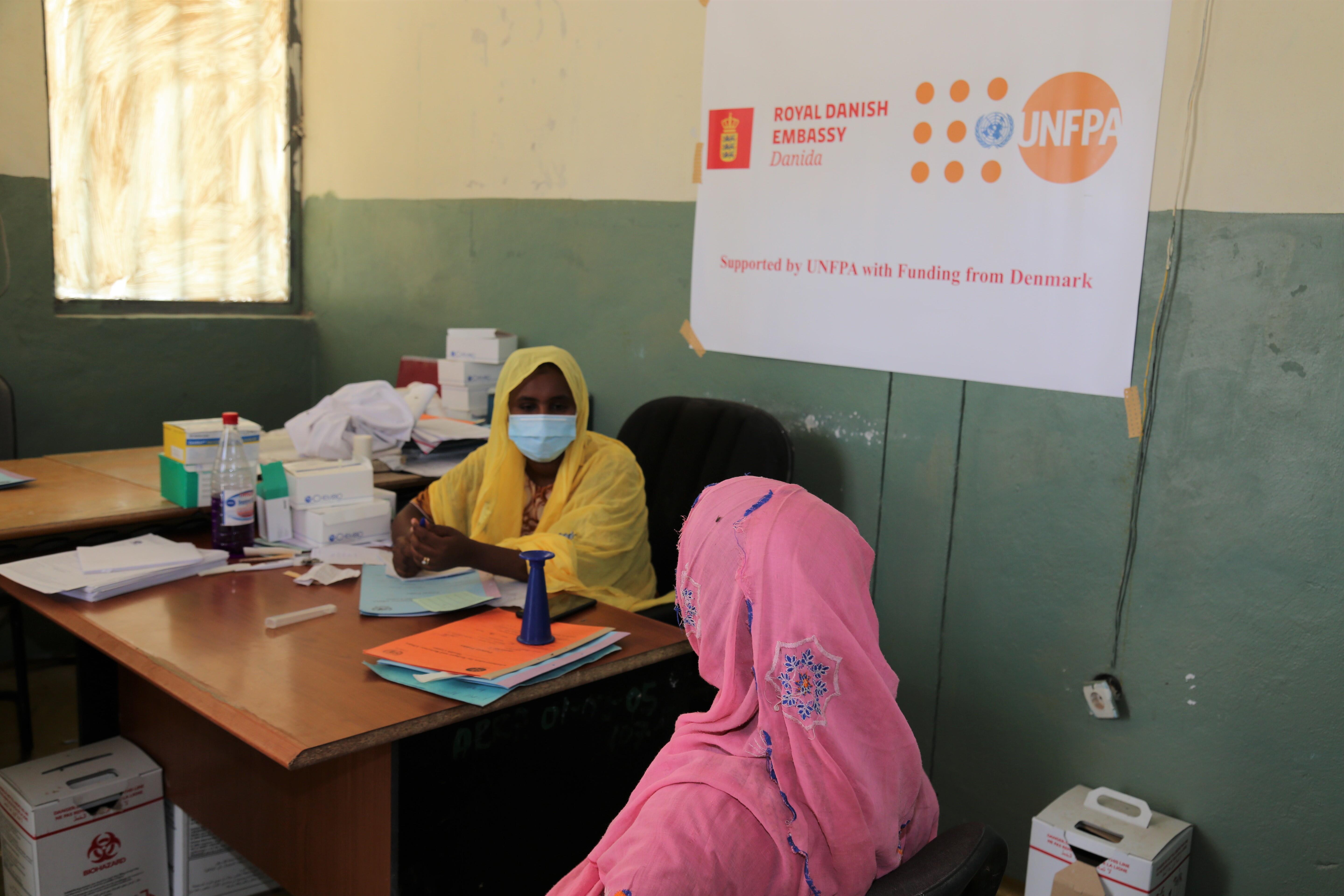Thirty-year old Kadiga Mohammed is an Eritrean refugee who has lived in the Asayita Refugee Camp in the Afar Region of Ethiopia for the past 10 years. Already a mother of four children, she is 7 months into her fifth pregnancy. She came to the Gerhart Health Centre run by the Administration for Refugees and Returnees Affairs (ARRA) for her regular antenatal care follow-up at the Maternal and Child Health (MCH) unit of the health centre.
The MCH unit of the health centre is serving the needs of women of reproductive age in the host community in addition to those living among the more than 20 thousand refugees in the Asayita Refugee Camp. The “Integrated Project on Sexual & Reproductive Health, GBV and COVID-19 among women in Afar region in Ethiopia” which is being implemented by UNFPA through funding from the Government of Denmark is providing essential support to the Gerhart Health Centre. The centre is of one of the health institutions being supported by the project in its six implementation woredas including the Asayita woreda.
The support provided by the project is contributing to improving the low maternal health indicators in its implementation districts in the Afar Region. Only 15 percent of women in the region are delivering at a health institution and the skilled birth attendance remains only a little more than 11 percent according to the Ethiopian Demographic and Health Survey of 2016.
A total of around 37 thousand internally displaced persons and refugees are being supported by the project. As far as maternal health is concerned the project’s support is taking the form of building the capacity of health professionals and health institutions as well as distributing kits and essential maternal health supplies to ensure continuity of essential SRH and sexual and gender-based violence services integrated with COVID-19 response.
Dr. Ashenafi Tsegaye, Medical Director of Gerhart Health Centre, indicates the centre is giving all the maternal and child health services like antenatal care, delivery services and postnatal care and family planning noting that cases of gender-based violence are also being dealt with by the center.
The outreach service being conducted involving health professionals and influential members of the community is playing a pivotal role in encouraging women to use maternal health services and deliver at the heath centre. “Almost one hundred percent of deliveries are now conducted at the health centre,” notes Dr. Ashenafi.
But the Gerhart Health Centre remains ill equipped to provide quality maternal health services. Midwife Semira Mohammed while appreciating the support provided by UNFPA through the Danish funded project such as clean delivery kits, delivery sets, essential maternal health medicines and PPEs, she underlines the importance of availing ultrasound machines and oxygen concentrator.
The health centre also needs to strengthen efforts through community outreach activities to create demand for its family planning services. The experience of Kadiga alone demonstrates lack of interest among the community the centre is serving in using the family planning service.
As to Kadiga Mohammed she didn’t mind waiting a long line to get her antenatal check-up. She has already delivered three of her children at the health centre and for her the services offered there have been a life saviour. “My antenatal follow-up has helped me to protect myself from problems like anaemia and giving birth at the health centre protected me from complications like haemorrhage’” she says.


